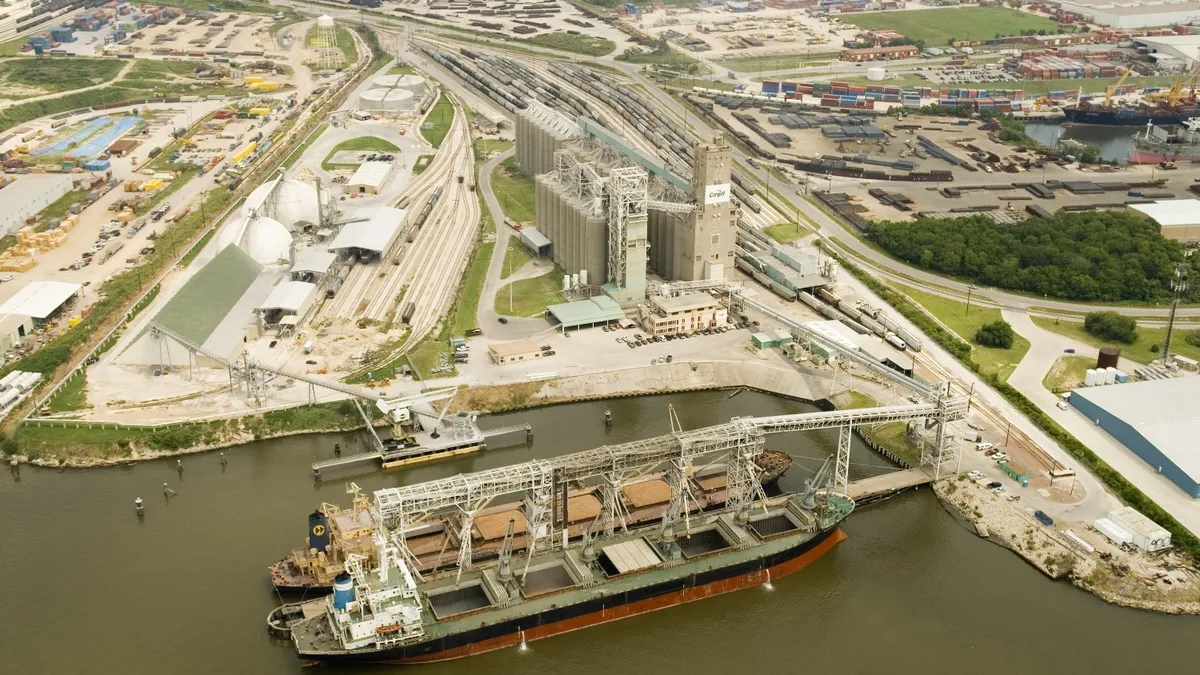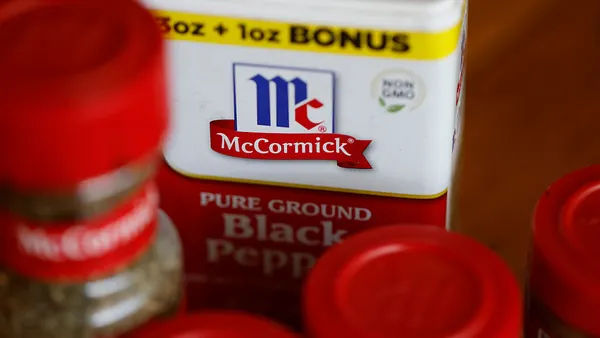Dive Brief:
- Cargill and CHS will expand their joint grain export business Temco with the addition of a terminal in Port Houston, the companies announced Jan. 13.
- The export terminal, owned by Cargill, can handle up to 250 bushels annually with storage capacity for 6 million bushels and 350 rail cars. Temco operates three other facilities, all in the Pacific Northwest.
- The Houston facility will help boost access to international markets “for U.S. farmers to meet the growing demand for grain across the globe,” Cargill and CHS told Supply Chain Dive in an email.
Dive Insight:
The Houston terminal is located near Mexico, the U.S.’ top agricultural trading partner. Mexico accounted for 15.5 percent of U.S. agricultural exports in 2021, with grains, oilseeds and meat making up three-fourths of exports, the U.S. Department of Agriculture reported.
Trade between the U.S. and Mexico has surged following the signing of free trade agreements — most recently the U.S. Mexico Canada Agreement, signed in 2018. The USDA also reported that demand for agricultural goods in Mexico rebounded in 2021 following slow economic growth.
The Temco terminal in Houston will “open new opportunities for U.S. farmers,” John Griffith, CHS executive vice president of ag business, said in a statement.
Temco is a 50-50 partnership between Cargill and agribusiness cooperative CHS. The venture’s three other facilities in Oregon and Washington state are aimed at providing access to markets in the Asia-Pacific region.
Port Houston was one of the only major agricultural ports not to experience export losses during the pandemic, according to a research paper from the Department of Agricultural and Resource Economics at the University of California, Davis.
Declining exports had pushed the USDA to provide shippers with financial incentives to encourage more shipments out of major ports in the Pacific Northwest. The department also recently partnered with Port Houston to increase capacity for exporting chilled and frozen agricultural commodities.
















